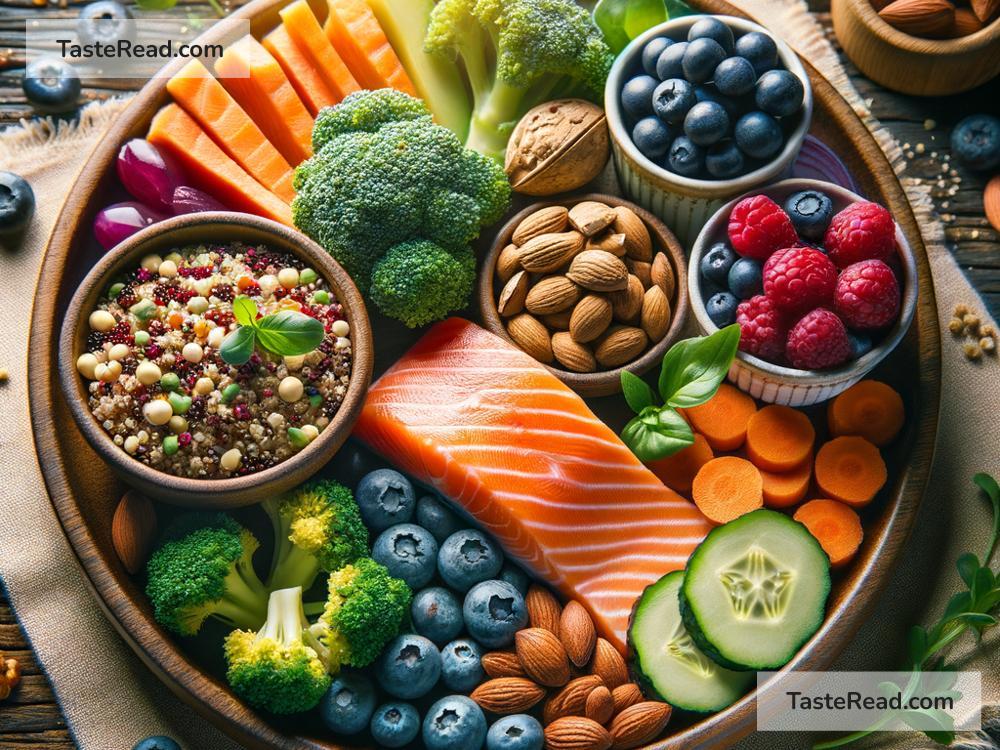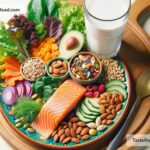The Benefits of a Balanced Diet for Brain Health: Supporting Cognitive Function
Do you ever feel like your brain is foggy or you’re struggling to focus? You’re not alone! Our brains are incredible organs that control everything we do, from thinking and learning to moving and feeling. But just like the rest of our bodies, our brains rely on the food we eat to function properly. That’s why eating a balanced diet is not just good for your body—it’s great for your brain, too!
In this blog, we’ll explore how a balanced diet supports brain health and improves cognitive function. Don’t worry, we’ll keep it simple so you can easily understand and take steps toward better brain health today!
What Is a Balanced Diet?
First, let’s talk about what a balanced diet actually means. A balanced diet is when you eat a variety of nutritious foods in the right proportions to give your body—and your brain—the energy and nutrients it needs. This means consuming:
- Fruits and Vegetables: These are packed with vitamins, minerals, and antioxidants.
- Whole Grains: Foods like brown rice, oats, and whole wheat bread contain fiber and energy to fuel your brain.
- Healthy Proteins: Lean meats, fish, eggs, beans, and nuts help build and repair tissues, including those in the brain.
- Healthy Fats: Fats found in fish, avocados, nuts, and olive oil are especially important for brain health.
- Hydration: Don’t forget to drink plenty of water—it’s vital for overall brain function!
When you eat a mix of these food groups, your brain gets the nutrients it needs to work at its best.
How Food Affects Brain Health
You might be wondering, “How does what I eat affect my brain?” Your brain needs specific nutrients to stay healthy, sharp, and focused. If you give it the right fuel, it can perform better—and even help make aging and memory loss less of a problem.
Here are a few ways food plays a role in your brain health:
-
Improves Brain Power: Certain nutrients, like omega-3 fatty acids and antioxidants, can boost your brain’s ability to think, learn, and remember. Healthy fats from fish like salmon or nuts help keep your brain sharp.
-
Protects Against Brain Diseases: A balanced diet can protect your brain from illnesses like Alzheimer’s disease and dementia. Eating plenty of fruits, vegetables, and whole grains gives your body antioxidants, which fight harmful substances that damage brain cells.
-
Reduces Brain Fog: Have you ever struggled to focus or think clearly? That’s brain fog, and it’s often caused by poor nutrition or dehydration. Drinking enough water and eating foods that give you steady energy, like whole grains, can help clear the fog.
-
Regulates Mood: Did you know your brain and your mood are closely connected? Eating a balanced diet helps stabilize your mood by promoting healthy levels of chemicals in the brain like serotonin and dopamine.
The Best Foods for Your Brain
To keep your brain happy and healthy, it’s important to choose the right foods. Here are some brain-boosting foods to include in your diet:
-
Fatty Fish: Salmon, mackerel, and tuna are rich in omega-3 fatty acids, which strengthen brain cells and improve memory.
-
Blueberries: These tiny berries are packed with antioxidants that protect your brain from aging.
-
Leafy Greens: Vegetables like spinach, kale, and broccoli are full of nutrients like vitamin K, which helps improve memory.
-
Whole Grains: Foods like quinoa, oats, and whole wheat bread release energy slowly, keeping your brain alert and focused throughout the day.
-
Nuts and Seeds: Walnuts, almonds, and sunflower seeds are great sources of vitamin E and healthy fats, which protect your brain cells.
-
Eggs: Eggs are a good source of choline, which plays a role in memory and brain development.
-
Dark Chocolate: Eating small amounts of dark chocolate (with at least 70% cocoa) gives your brain antioxidants and improves blood flow.
Habits Matter Too!
Eating a balanced diet is important, but so are your habits. To get the most benefit, try these tips:
- Stay Consistent: Eating one healthy meal won’t transform your brain overnight. Consistency is key!
- Limit Processed Foods: Snack cakes and chips might taste good, but too much sugar and unhealthy fats can harm your brain over time.
- Drink Water: Staying hydrated is essential for concentration and memory.
- Don’t Skip Meals: Skipping meals can leave your brain running on empty, making it harder to focus.
Small Changes for Big Benefits
Improving your brain health doesn’t have to be difficult. Start small! Add an extra serving of vegetables to your lunch or swap white bread for whole grain bread. Make a habit of drinking water instead of sugary sodas. Over time, these small changes add up, keeping your brain strong and healthy.
Final Thoughts
Your brain works hard every day, so why not give it the care it deserves? A balanced diet packed with healthy foods provides the nutrients your brain needs to stay focused, sharp, and happy. Whether you’re studying for an exam, working on a big project, or simply spending time with loved ones, brain health makes all the difference.
So, the next time you sit down for a meal, remember: You’re not just feeding your body—you’re fueling your brain, too!


